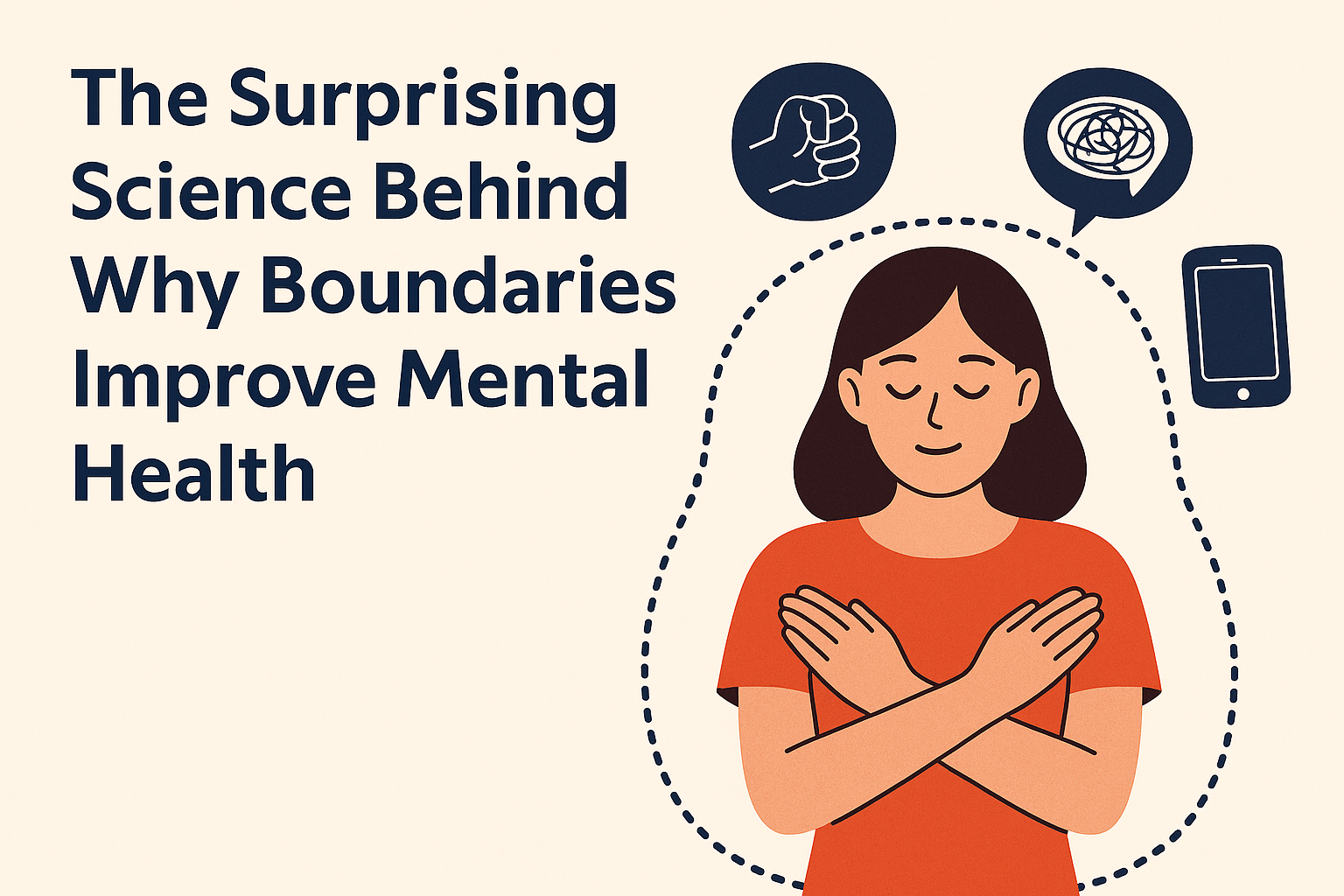
The Surprising Science Behind Why Boundaries Improve Mental Health
For a long time, I thought saying “yes” was how I proved I was kind, supportive—even spiritual. But what I eventually learned, both through personal experience and through my work as a somatic therapist, is this:
Boundaries aren’t walls. They’re bridges to better mental health.
In a world that constantly demands more—more output, more connection, more availability—clear boundaries are how we reclaim our center. And there’s science to back it up.
Why Boundaries Matter (More Than You Think)
Psychologists and neuroscientists agree: when you set and honor your boundaries, your brain and body thank you.
Here’s why:
1. Boundaries Reduce Anxiety by Creating Control
When you define what’s okay and what’s not, you regain a sense of personal autonomy. This sense of control quiets the part of your brain responsible for stress and threat detection—leading to lower anxiety, less decision fatigue, and better sleep.
2. They Prevent Burnout by Protecting Your Energy
Think of boundaries like energetic containers. They hold your life force. Without them, your attention leaks in every direction. With them, you have the clarity to choose where your energy goes—and that’s powerful.
3. They Help You Emotionally Regulate
When you step away from chaotic group chats, toxic dynamics, or overstimulation (hello, social media), your nervous system has room to recalibrate. This doesn’t mean you’re “too sensitive.” It means you’re learning how to listen to your system’s signals.
The Brain Loves Boundaries
Research shows that when we’re not constantly overstimulated, our prefrontal cortex—the decision-making and problem-solving part of the brain—functions more efficiently. You think more clearly. You process emotions more calmly. You become more resilient and less reactive.
Boundaries, in essence, act like a mental immune system.
They help you discern what to let in and what to lovingly keep out.
How to Start Practicing Boundary Work
If setting boundaries feels difficult, you’re not alone. Many of us were conditioned to prioritize others’ comfort over our own needs. But boundary work is not about being rigid. It’s about being clear, honest, and loving—with yourself first.
Here are a few ways to begin:
Notice your “shoulds.” They often point to places where a boundary wants to be.
Use somatic cues. If your chest tightens when someone texts you, pay attention. Your body is signaling.
Speak with clarity. “That doesn’t work for me right now” is a complete sentence.
Start small. Boundaries are a muscle. Practice builds strength.
What Happens When You Do the Work?
You begin to feel safe—in your body, in your relationships, in your life. Your relationships shift toward more mutual respect. You stop over-explaining, over-giving, and overextending. And maybe for the first time, you realize you are enough, even when you say “no.”
At The Heart Centered Being, I help clients reconnect with their truth through nervous system regulation, somatic healing, and spiritual integration. Boundary work is a cornerstone of that journey—because nothing heals faster than a body and mind that feels safe and sovereign.
You deserve peace, clarity, and protection for your energy. If you’re ready to learn how to hold your boundaries with love and power, I invite you to explore coaching or somatic healing sessions.
👉 Visit www.TheHeartCenteredBeing.com to begin your journey.
